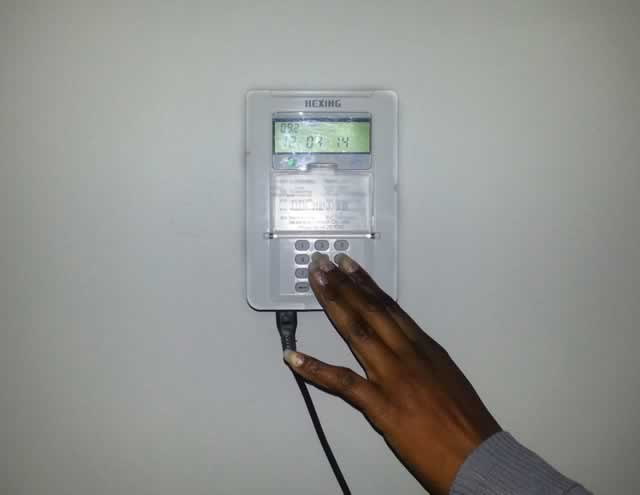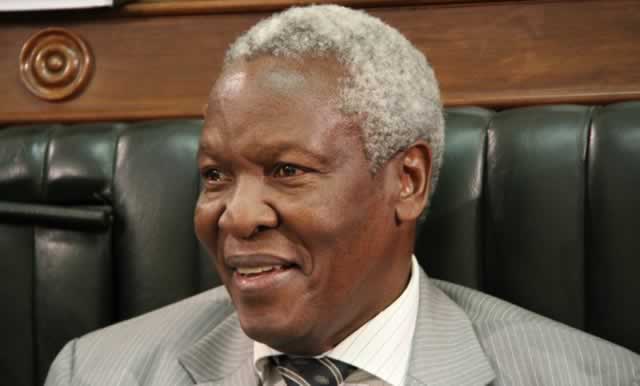Smart metering the way to go


It is a fact that prepaid meters are cheaper, but zesa is losing out more in terms of revenue because of defects on the units
Felex Share Senior Reporter
As long as Zesa does not switch to smart meters, instead of concentrating on generating and supplying power, it will continue focusing on chasing those who bypass meters.
It is now more than two years since zesa Holdings proposed the introduction of electricity smart meters in the country.
Plans to pursue smart metering technology came after the power utility realised the serious technical risks associated with the other four-year prepaid meter system, which is in place at the moment.
But it seems zesa is taking one step forward and two steps backwards on the issue.
The system is bleeding the power utility of a conservative $10 million a month due to power theft and leakage.
The defective prepaid meters have seen many customers using power for free for many years while the power utility watches, clueless.
A smart meter, according to power and energy experts, reports back to the centre any shortfall or meter bypassing taking place.
According to the Zim-Asset prepaid meter target base, zesa has to install 800 000 meters by 2018 and to date the power utility has installed more than 550 000 units.
As they pursue this target, zesa management should bear in mind that the world is entering a new era of energy consciousness and power utilities face unprecedented challenges.
Stringent regulations, environmental concerns, growing demand for high-quality, reliable electricity, and rising customer expectations are forcing utilities to rethink electricity generation and delivery from the bottom up.
Regionally, power utilities are struggling with energy shortage, ageing assets, departing expertise and a lack of accurate information about their customers and the state of the grid.
Everyone knows about the shambolic zesa billing system, which is based on estimates and has seen the power utility failing to capture payments timeously.
At times, consumers have been forced to pay their bills twice.
zesa should know that a plethora of new opportunities are open to those power utilities that are dynamic, innovative and ambitious.
The availability of low cost computing and telecommunications technologies, new renewable energy generation options and smart metering technologies are changing the rules of the game.
Traditionally, power is generated at remote, centralised plants and then transmitted to load centres over high-voltage transmission lines before being distributed to the consumer.
Most of them were designed and deployed over half a century ago, the country’s grid infrastructure, and the systems that monitor and control them, are severely outdated and incapable of meeting today’s energy needs.
It is with this in mind that zesa should see the smart metering technology as a multi-faceted solution to the problem of modern energy delivery.
Some zesa managers have argued that smart meters have “technical risks and are expensive” adding that there are pertinent issues beyond functionality that should be taken into consideration before migrating to smart metering.
They say there are differences between prepaid meters and smart meters in terms of operational costs, technology risk, functionality, technical barriers and lead time.
It is a fact that smart metering projects have been rolled out mainly in the first world countries and direct comparisons cannot always be drawn due to the differing nature of socio-economic conditions and the varying policy and commercial drivers.
But what makes zesa’s argument illogical is that while the smart metering technology is expensive, in the Southern African region, most utilities are implementing smart metering pilot projects and some are rolling out the technology after successful pilots.
Some of the utilities in the region and on the continent that have or are piloting on the metering technology are: Eskom (South Africa), TANESCO (Tanzania), ZESCO (Zambia), Kenya Power and Lighting Company (KPLC) (Kenya) and Botswana Power Corporation.
The last time ESCOM (Malawi) had floated a tender and by now one believes tremendous progress has been made.
Already, utilities are investing an enormous amount of money in smart meters and advanced metering infrastructure (AMI) in the first step towards implementing the smart grid.
This simply shows that the smart metering is the way to go.
It represents a shift towards a more flexible network topology that encourages two-way power flow between the grid and small-scale distributed energy resources.
It encourages increased cooperation between consumers and the utility to reduce peak loads and optimise resource allocation and efficiency.
Consumers have duped zesa through prepaid meters and at one point, feeling the effect, the power utility mounted prepaid meters on poles instead of houses to curb tampering and power theft.
Most meter tampering is being done on meters that are installed on houses.
Mounting them on poles means consumers cannot access them.
Only God knows how this pole mounting strategy is faring, that is if it is still in practice.
It is high time for zesa knows that the smart grid will also bring about an exponential increase in the amount of information coming from the grid and being fed to network operators, utility executives and consumers for increased visibility and control.
Fundamentally, the smart grid is the vision of a more reliable, environmentally friendly and economically viable power.
Environmental and economic sustainability are essential variables in the 21st century’s energy equation.
The smart grid will return balance to this “cost-benefit” paradigm by introducing intelligent response into the interaction between supply availability and demand.
With the help of markets and real-time system information, zesa and other regional utilities will be able to work in unison with consumers to produce the most cost-effective and efficient supply mix.
It is a fact that prepaid meters are cheaper but zesa is losing out more in terms of revenue because of defects on the units.
As long as zesa does not switch to smart meters and instead, concentrate on generating and supplying power, it will continue focusing on chasing those who bypass meters.







Comments